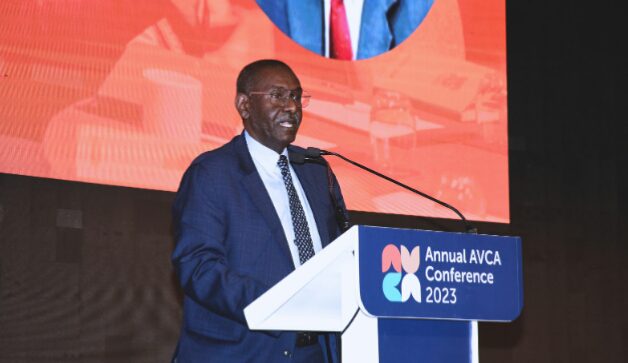Global Courant 2023-05-09 17:59:41
Following the successful 19th Annual Conference of the African Private Capital Association (AVCA), the industry association held its third Venture Capital (VC) Summit.
The summit brought together more than 400 private lenders, entrepreneurs and innovators to discuss emerging trends and strategies for navigating uncertainty and sustaining sustainable growth in venture capital activity in Africa.
Abi Mustapha-Maduakor, CEO of AVCA, opened the summit with a welcome speech describing how other African governments can learn from the interventions Egypt, the summit’s host, has made to revive growth and support local and international attract investment.
She said: “Egypt has a vibrant entrepreneurial ecosystem enabled by targeted government initiatives to create an enabling environment, making it one of the leading VC hubs on the continent.”
Following AVCA’s CEO, Nadir Mohammed, Regional Director, Equitable Growth, Finance & Institutions (EFI), Middle East & North Africa Region, World Bank Group, continued to unpack the enabling role of Egypt’s micro, small and medium-sized Enterprise Development Association (MSMEDA) plays a role in catalyzing growth across the country. MSMEDA co-hosts AVCA’s VC Summit and is a key partner of the World Bank – delivering on its agenda to drive equitable wealth creation.
Nadir Mohammed outlined the importance of achieving shared progress, saying: “Our priorities of poverty reduction and shared prosperity align with AVCA’s mandate to encourage private investment in sectors that drive this change. Without it, we cannot navigate a challenging global environment or meaningfully achieve our goal of driving private sector-led development.”
The inaugural panel session, On the Rise – Venture Capital and Early-stage investing in Africa Catapulting, discussed the maturation of the entrepreneurial space in Africa. Panelists, including Brian Waswani Odhiambo, Partner, Novastar Ventures, discussed the proponents of the ecosystem’s exponential growth, the rise of venture capital and the role of managers in supporting Africa’s entrepreneurial ecosystem.
Fellow panelist Maurizio Caio, founder and managing partner of TLcom Capital, explained that Africa’s strong performance last year amid a weakened global VC landscape was due to “the focus on building solutions for the real economy, addressing shortages of critical services within payment systems and healthcare.” Panelists exchanged views on the broader participation of financing partners as a key feature of this, citing DFIs moving upstream in the investment lifecycle and international finance closing the gap in late-stage financing.
Idris Bello, Managing Partner, LoftyInc Capital Management, urged the audience to reflect on the importance of always having African investors at the table, “whose commitment is unwavering and essential to moving forward in more difficult times.”
Plenary sessions shifted to fintech, the dominant sector within VC. Prominent industry voices, including Khaled Ben Jilani, Senior Partner, AfricInvest, applauded the industry’s dynamism and delved deeper into areas where the industry could innovate further.
He said that 95% of transactions across the continent are still done in cash. Khaled Ben Jilani said: “There is a huge opportunity for growth in the primary financial digital market and even more so in areas that enable it, from insurance tech to B2B payments, and advancing advancements within embedded finance.”
Mohamed Okasha, Founder & Managing Partner, DisrupTech described how Africa’s next wave of fintech will grow faster than the last – supported by the breadth and depth of the existing infrastructure already in place.
The panelists collectively agreed that this would generate further growth and success in the form of local IPOs and internationally-focused homegrown companies.
As the proceedings split into multiple streams, in one session, Trailblazing Beyond Fintech, practitioners highlighted the array of market-efficiency technologies across the logistics, agriculture and energy sectors – supporting more streamlined second-generation services poised for growth.
Marcus Watson, Partner, KawiSafi Ventures and Sandrine Henton, Managing Director, EG Capital, promoted a comprehensive approach to building technology-enabled climate resilience. Matthieu Cucorroy, Head of the European Investment Bank’s Private Equity Unit, highlighted the potential for replicability in the sector and the collaboration it creates between emerging market investors and investors with a favorable track record.
Other sessions touched on current areas such as climate adaptation and mitigation technologies, the rising interest in venture capital, and strengthening corporate governance to influence the growth of startup ecosystems across the continent.
In a session summarizing the role of angels, accelerators, incubators and fund managers in finding startups and accelerating their growth from ideation to IPO, Oyin Solebo, MD, ARM Labs Lagos Techstars Accelerator, pointed out that too much female founders and entrepreneurs with potential were “self-deselecting, as compared to men”, who are common in accelerators, and put themselves forward as entrepreneurs with more confidence.
In the closing panel, Straight from the source: LP Perspectives on Venture Capital in Africa, Najada Kumbili, Head, Investments, Visa Foundation; Simone Baur, Director, Impact Investments, Allianz Global Investors and Sherine Shohdy, Head of Office and Coverage Director, Egypt, British International Investment surveyed the views, preferences and expectations of both commercial and development-focused lenders about the future of venture capital in Africa.
Simone Baur said the climate is becoming more competitive and raising capital is challenging. She suggested that development finance institutions and blended finance structures could spend public money on players who were first overlooked.
She continued: “More money is coming to Africa, and it’s not enough, and what private and institutional players prioritize is not clear.” Sherine Shody said VC investors need to extend their maturities beyond the typical 5-year cycle of private equity horizons, saying: “Our role is to invest patiently, continue to take on more risk and mobilize other types of investors – they play a role.”
Concluding on the ubiquity of technology, Sherine Shody urged the VC ecosystem to embrace the impact that new technologies can have across many industries as technological innovations such as AI are no longer an imagination but a part of our reality.








